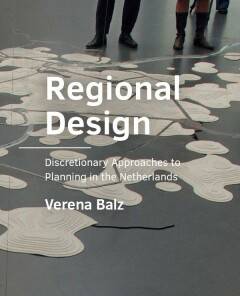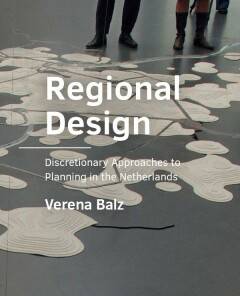
Je cadeautjes zeker op tijd in huis hebben voor de feestdagen? Kom langs in onze winkels en vind het perfecte geschenk!
- Afhalen na 1 uur in een winkel met voorraad
- Gratis thuislevering in België vanaf € 30
- Ruim aanbod met 7 miljoen producten
Je cadeautjes zeker op tijd in huis hebben voor de feestdagen? Kom langs in onze winkels en vind het perfecte geschenk!
- Afhalen na 1 uur in een winkel met voorraad
- Gratis thuislevering in België vanaf € 30
- Ruim aanbod met 7 miljoen producten
Zoeken
€ 29,95
+ 59 punten
Omschrijving
This thesis elaborates on the role and position of regional design in spatial planning. Building upon the argument that design in this realm aims to improve planning guidance by judging its implications for particular situations, the thesis develops an analytical framework for an enhanced understanding of how design both influences, and is influenced by, prevailing planning rationales. The analytical framework is applied to a set of regional design initiatives that evolved in the context of Dutch national plans between 1988 and 2012. Significantly, the analysis reveals aspects of spatial planning frameworks that shape the performances of design practice, of particular importance being the flexibility of planning frameworks and the involvement of actors in initiating, conducting and judging design. In theoretical terms, the thesis contributes to the integration of planning and design theory. The societal relevance of this dissertation evolves against the background of an increasing use of regional design-led practices in Dutch spatial planning since the mid-1980s.
Specificaties
Betrokkenen
- Auteur(s):
- Uitgeverij:
Inhoud
- Aantal bladzijden:
- 248
- Taal:
- Engels
- Reeks:
Eigenschappen
- Productcode (EAN):
- 9789463661829
- Verschijningsdatum:
- 28/06/2019
- Uitvoering:
- Paperback
- Afmetingen:
- 190 mm x 235 mm
- Gewicht:
- 523 g

Alleen bij Standaard Boekhandel
+ 59 punten op je klantenkaart van Standaard Boekhandel
Beoordelingen
We publiceren alleen reviews die voldoen aan de voorwaarden voor reviews. Bekijk onze voorwaarden voor reviews.









